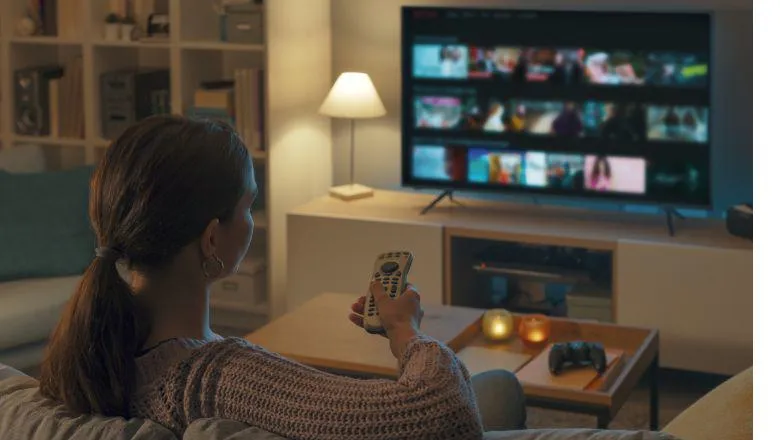Research shows young Danes pay little attention to screen productions from other Scandinavian countries, opting for UK shows instead.

Professor Andrea Esser and Professor Jeanette Steemers have found Anglo-Saxon culture has become the natural extension of young Danes' cultural realm. British panel shows, for example QI, 8 out of 10 Cats Does Countdown, or Would I Lie To You and stand-up comedians (Lee Mack, David Mitchell, Greg Davies, Jimmy Carr, Katherine Ryan) are widely known and consumed in Denmark.
The Screen Encounters with Britain project investigates the film, TV and streaming preferences of young Europeans aged 16-34. It explores how British screen content is accessed, viewed, and interpreted overseas, probing the implications for Britain in an evolving post-Brexit context.
Research shows 423 survey respondents were able to name an astonishing 164 unique British programme titles, which confirms the high status, long-term and frequent consumption of British screen content in Denmark.
The first report highlights the changing screen consumption habits of young people across Denmark and has discovered, unlike older Danish viewers, traditional TV has become almost insignificant for the younger age group. Nearly everything they consume is streamed on-demand , with Netflix being the most popular service, followed by HBO Max and Disney+, and a large amount of content is also watched on Youtube too.
Delving in further, the findings show the most important reason for choosing British content is humour - no matter how dark or sad - followed by the English language. British humour is also perceived as special - sarcastic, dark and intelligent - and is compared favourably to that of other countries, including the US. The ease of watching screen content in the English language is the second most popular reason for choosing UK content. British accents and dialects have their own appeal for many.
English has become young Danes' 'natural second language' and star presenters such as Jeremy Clarkson (Top Gear, The Grand Tour) and celebrity chef Gordon Ramsay (Hell's Kitchen, Masterchef), also proved to be popular on Youtube, particularly among young men in Denmark.
Importantly, the findings suggest that an acquired proximity to English-language media and culture through film, TV and language education competes with the historical, cultural and linguistic proximity between Scandinavian nations. Three future case studies will cover Germany, the Netherlands, and Italy, revealing whether this strong orientation towards Anglo-American productions is shared by young people in other parts of Europe.
Young Danes choose to watch British content because of its humour and because of the appeal of the English language, even down to British accents and dialects. In Denmark, at least, Brexit does not appear to have dented the taste for British film and TV.– Andrea Esser and Jeanette Steemers






